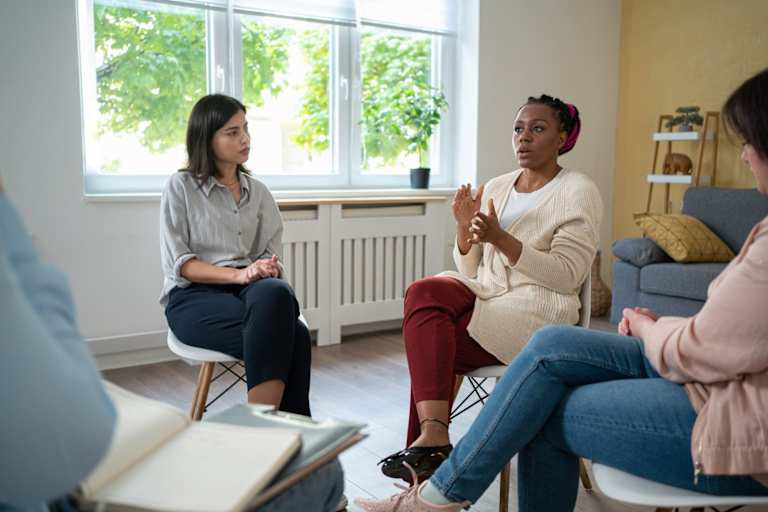How to Become a Licensed Counselor: A Step-by-Step Guide
- To become a licensed counselor, you need a master’s degree, 2,000-3,000 hours of supervised experience, and an active license.
- States require licensed counselors to renew their licenses every 1-2 years and complete continuing education hours.
- Licensed counselors jobs are projected to grow by 17% and offer a median annual salary of $59,190.
Steps to Become a Licensed Counselor
Becoming a licensed counselor requires an advanced degree, supervised practice, and licensure. Along the way, you’ll apply broad skills in empathy, communications, ethics, and professional judgement.
- Complete an Accredited Bachelor’s Degree Program
- Complete an Accredited Master’s Degree Program
- Gain Supervised Experience
- Pass Licensure Exams
- Apply for State Licensure
- Apply for Jobs and Maintain Credentials
Step 1: Complete an Accredited Bachelor’s Degree Program
Earning an accredited bachelor’s degree is the first step toward becoming a licensed counselor and typically requires four years of full-time study.
Common majors include psychology, social work, and human services, which blend general education coursework with specialized coursework focused on your major.
Step 2: Complete an Accredited Master’s Degree Program
After completing your bachelor’s degree, you can apply to a master’s program in mental health counseling, marriage and family therapy, social work, or a related subject. These programs typically require 2-3 years of study and range between 48-60 credits.
In addition to coursework, counseling programs also include practicum and internship placements, allowing you to gain supervised experience hours. Some programs also offer concentrations in areas such as clinical mental health counseling, school counseling, substance use counseling, or family therapy.
Step 3: Gain Supervised Experience
To qualify for licensure, most states require you to complete 2,000-3,000 hours of supervised clinical experience under a licensed counselor. You will complete some of these hours during your master’s program, but most take place after graduation.
During this time, you will have regular meetings with your supervisor, observe counseling sessions, offer counseling, and receive feedback on your counseling techniques.
Step 4: Pass Licensure Exams
After completing your internship, it’s time to pass your licensure exam. Most states require you to pass either the National Counselor Examination (NCE) or the National Clinical Mental Health Counseling Examination (NCMHCE), although a few require both exams. You can check with your state’s licensing board to learn about specific requirements in your state.
Step 5: Apply for State Licensure
Determine whether you are applying for a licensed professional counselor (LPC), licensed mental health counselor (LMHC), or licensed clinical professional counselor (LCPC) credential.
File an application with your state’s board of counseling, which typically requires official transcripts, proof of supervised hours, passing exam scores, a background check, and letters of recommendation. Most applications cost between $150-$300 to file.
Step 6: Apply for Jobs and Maintain Credentials
Some states offer a provisional license, allowing you to work while your full license is processed. You can find work in many areas, including private practice, healthcare systems, education settings, social services, and mental health centers, among others.
Most states require you to renew your license every 1-2 years. To do this, you must remain in good standing (e.g., no disciplinary actions) and complete all continuing education requirements.
Licensed Counselor Salary and Job Outlook
Salaries for licensed counselors vary based on location, employer, and experience level. Use our salary calculator to get a better sense of how much you can expect to earn.
Common Work Settings
Licensed counselors work in diverse settings, providing various services:
- Hospitals and clinics: Crisis intervention, inpatient/outpatient therapy
- Schools and universities: Academic, social-emotional, and career guidance
- Private practice: Individual, couple, or family therapy
- Nonprofits and community agencies: Trauma, addiction, or rehabilitation services
They rely on tools like teletherapy platforms, assessment software, and electronic health records to work effectively. Remote counseling is increasingly viable, especially through HIPAA-compliant telehealth services.
Expert Tip
Researching what it takes to become a counselor is helpful, but hearing from someone who has walked this path and works as a licensed counselor is invaluable. Gina Guddat, a licensed mental health therapist, shares her insights into becoming a counselor and finding a specialty:
“I remember I was in a class once and the professor started off his first day saying to his students, ‘Only one of you will make it. Who would ever study for seven years of their life, and give up their free time to do research when their peers are partying, just to help people?’ He was trying to weed out those that were not serious or just taking psychology as an elective. It made me even more dedicated.”
“What I wish someone had told me is that you don’t have to be married to one specialty. I think that during the years of your internships, you get pigeonholed into working in a specific sector and might have a tendency to stay there. Just because you worked in a hospital psychiatric ward in undergrad or you did an internship in community mental health with single mothers, you don’t need to stay there. I am a supervisor now and see my candidates start out in eating disorders and end up in equine therapy, working with horses and clients in private practice. You can break out of what you started with and grow in the psychology field. I started working with women in domestic violence situations, writing safety plans, but now work with couples and marriages.”
Become a Licensed Counselor in Your State
The steps to becoming a licensed counselor vary depending on the state where you plan to practice. Learn more about specific requirements in some of the top states for licensed counselors:
Frequently Asked Questions
The amount of time you spend becoming a licensed counselor can vary, based on whether you’re enrolled on a part-time or full-time basis, and how many hours of supervised experience you complete during your master’s degree versus after you graduate. In general, plan to spend between 7-8 years earning a master’s degree and completing licensure requirements.


